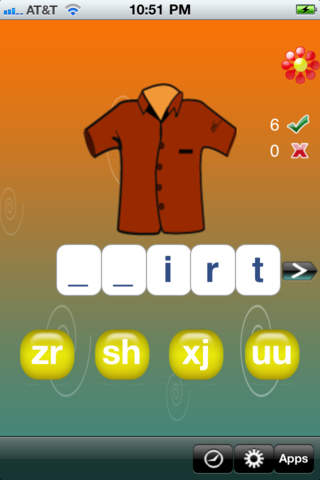Why Focus on Reading Skills?
Developing superb reading skills is a foundation that will support your child throughout his or her academic career. Children who lack great reading skills are negatively affected and often struggle with other subjects.
According to the National Institute of Child Health and Human Development, “Reading is the single most important skill necessary for a happy, productive and successful life.”
Some Unsettling Statistics
Children who have not developed some basic literacy skills by the time they enter school are three to four times more likely to drop out in later years (National Adult Literacy Survey).
Fifty percent of American adults are unable to read an eighth grade level book (Jonathan Kozol, Illiterate America).
Disadvantaged students in the first grade have a vocabulary that is approximately half that of an advantaged student (2,900 and 5,800 respectively) (Graves, 1986 / White, Graves & Slater, 1990).
Ways to Improve Your Child’s Reading Skills
1. Start Now
The best way to encourage exceptional reading skills is to start early. Give your child a head start by investing time and energy encouraging activities that promote honing their reading skills.
According to kidshealth.org, by age four, kids should begin to:
– Recognize and write some of the letters of the alphabet (12-15 letters is a good goal).
– Read and write their names.
– Match some letters to their sounds.
– Understand that print is read from left to right, top to bottom.
– and more.
Strive to meet these reading milestones and beyond. The more advanced your child’s reading skills, the better. A statistic to keep in mind: first grade children with good word recognition skills are exposed to almost twice as many words in their textbooks as were children who had poor word recognition skills (Juel, 1988).
While it’s best to start early, it’s not too late to encourage reading now. Take the time now and reap the rewards later.
2. Set Aside Time
Cultivating great reading skills starts at home. The best thing that parents can do to encourage above average reading skills for their children is to give their time, and read with their children. Out-of-school reading habits of students has shown that even 15 minutes per day of independent reading can expose students to more than a million words of text in a year (Anderson, Wilson, & Fielding, 1988).
3. Cater to Their Needs
It’s no secret that a lot of kids think of reading as a chore.
For those of you whose children would rather take a nap than read, one way to get them excited is to cater to their interests. What is it they’re excited about? Choose what you read with your child based on curiosities and hobbies; and ask them what they like reading best. If they like holding the book and flipping the pages, let them do it. Is your child distracted during your reading time? Create a special place to read with them. Build a fort, create a reading corner with comfy chairs or go on a trip to read in the park. In order to get your child excited about reading, a large part is putting in the extra effort to make it fun for them.
And check out the Pratt Library’s Kids Buzz section on their web site loaded with information about great free resources and programs catered to engaging children in reading.
4. Make Use of New Technology
Today’s children are digital natives. Some are calling them “The Touch Screen Generation.” As educators continue to incorporate learning and technology, your children will expect to be entertained by fun apps and games while learning to read. In an excerpt from an article, “The Touch Screen Generation,” one mother talks about her four year old son’s relationship with technology:
“Mom, everyone has technology but me!” my 4-year-old son sometimes wails. And why shouldn’t he feel entitled? In the same span of time it took him to learn how to say that sentence, thousands of kids’ apps have been developed—the majority aimed at preschoolers like him. To us (his parents, I mean), American childhood has undergone a somewhat alarming transformation in a very short time. But to him, it has always been possible to do so many things with the swipe of a finger, to have hundreds of games packed into a gadget the same size as Goodnight Moon (The Atlantic).
Here are some apps that will have your kids saying:
abc PocketPhonics ($2.99): Since reading and writing skills usually go hand-in-hand, abc PocketPhonics cultivates both through seeing, hearing and doing.
Word Magic ($0.99): a spelling app which shows a picture of an object and gives some letters to drag and drop, Word Magic both teaches and entertains.
The Pratt Library also offers
For more reading apps, check out this list on icanteachmychild.com.
For those who don’t necessarily have a tablet or don’t want their child using it, there are many online reading games which will do the trick. PBSkids.org and abcya.com have modified learning down to a science.
The use of educational apps and online games can make learning fun. You just need to find out which will hold your child’s attention. Once you find the right medium, your child will be hooked.
5. Follow Up and Praise
Two important steps in honing your child’s reading abilities are following up with educators and giving praise where praise is due (and offering encouragement and help when they miss the mark). If your child is struggling in reading, they aren’t necessarily going to get better on their own. The ability to read and comprehend transcends to other subjects, giving them a disadvantage. Listen to your child’s teacher about their reading comprehension level and take steps to bring that level up. If that means after school tutoring or extra time reading with you, the extra time spent is essential.
Sometimes, to encourage kids to read, a reward system can be helpful. Programs like Pizza Hut’s Bookit and Chucke E Cheeses’ Reward Calendars give kids an incentive to read. You could also create your own with rewards that you select. Sometimes the chart on the refrigerator with gold stars for each “step” reached is reward enough. Public Libraries in our area offer summer reading incentive programs as well.
With these five tips, your child will be on their way to reading bliss.













